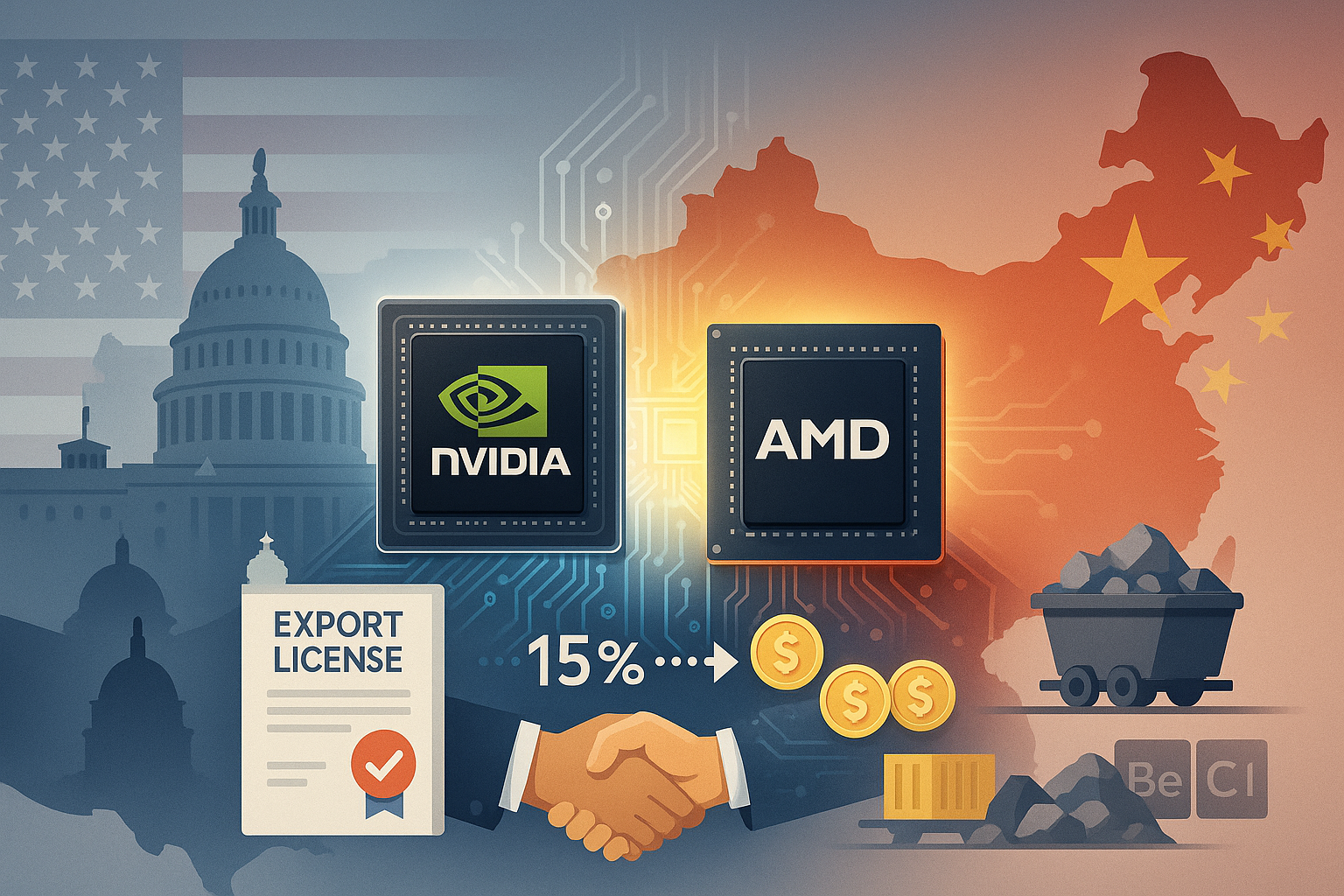
In April, the Trump administration announced that U.S. companies such as Nvidia and AMD would require licenses to export certain semiconductor chips to China. These chips are used in AI development and have raised concerns about the potential advancement of Chinese AI and military infrastructure. This prompted a ban on exports, but ultimately the ban was removed due to fear that China would continue expanding its manufacturing capability and circumvent the need for American imports. Lifting the ban also prompted China to remove some of its restrictions on exports of Rare Earth Elements to the U.S., which are integral in many advanced military applications.
The lifting of regulations came with the stipulation of needing licenses to export those microchips. In order to receive these licenses, Nvidia and AMD entered an unprecedented deal with the Trump administration, stating they will pay 15% of the revenue on sales to China directly to Washington. This is a highly contentious deal as it sets a precedent of requiring payment for the right to export. To avoid it being categorized as a tax on exports, the companies are volunteering the portion of revenue, though many still see it as such. The use of these funds is still unknown, but they could be used for a multitude of purposes.
Washington’s worries of China using U.S.-sourced chips to advance military and governmental capabilities have been reduced as Chinese authorities have been pushing for private and state-owned companies not to use them in government-related projects. They have also questioned tech companies that have ordered these chips when domestic chip options are available. This creates a concern over the future of the microchip market in China, as it appears more likely that Beijing is pushing for independence from the United States.



